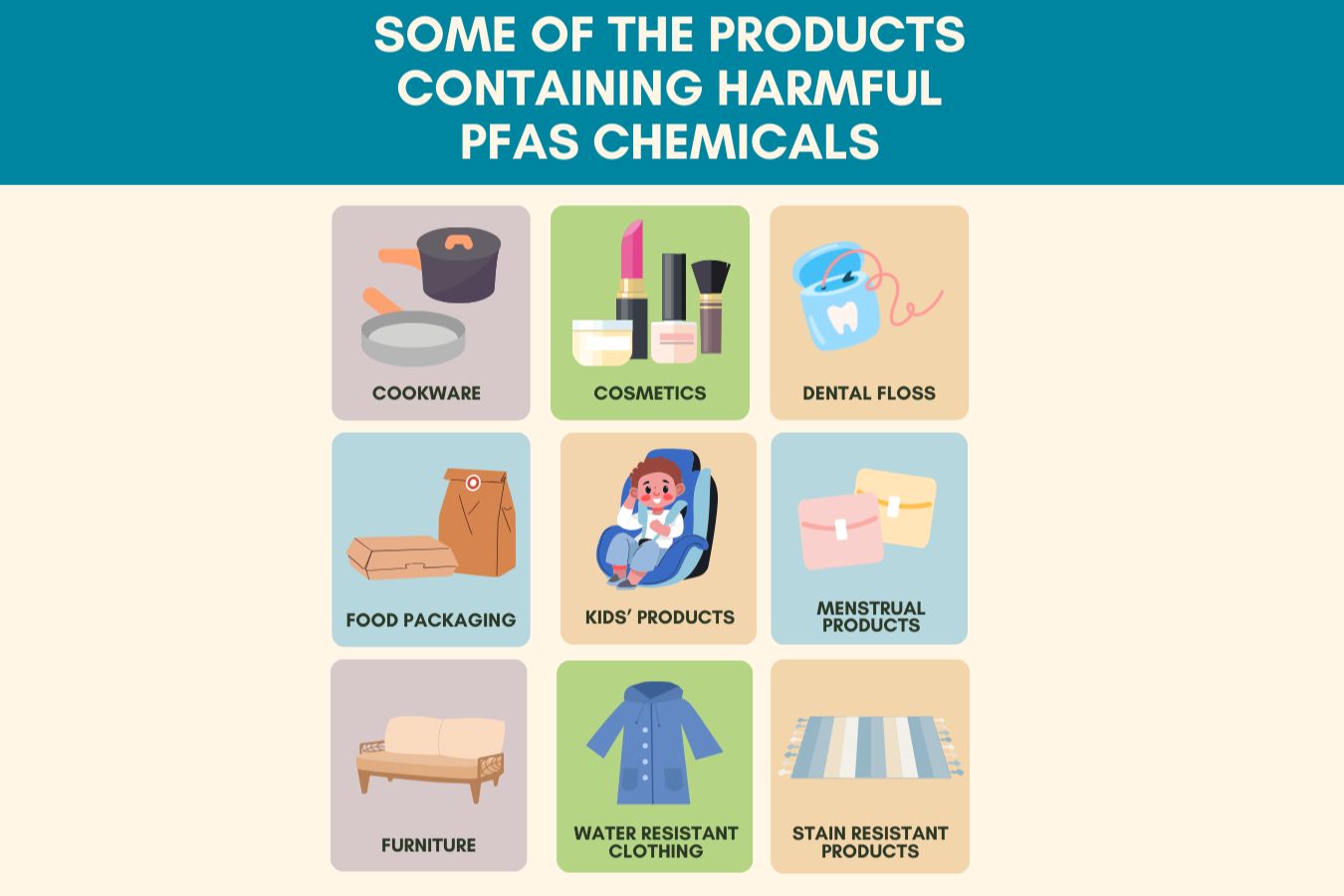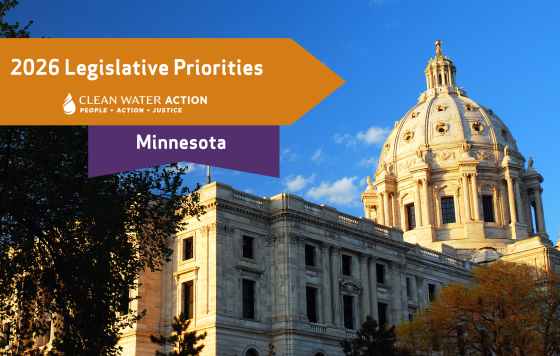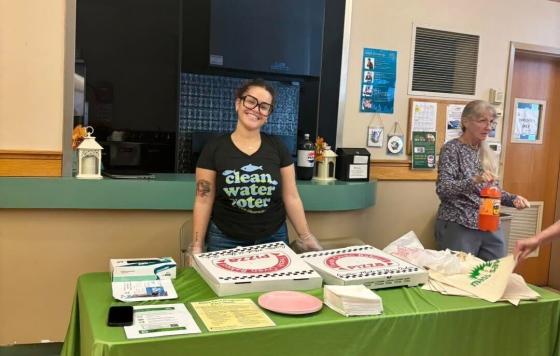
Many of us living in the United States of America take clean drinking water for granted. I myself regularly take cups out of the cupboard to fill at the tap, assuming that whatever water flows out has been deemed safe for my consumption. However, when I started working at Clean Water Action (Clean Water) this past January, I learned that is not necessarily the case and that it’s incredibly important to research local water sources.
As soon as my first day at Clean Water, I started canvassing about PFAS chemicals—or Per- and Polyfluoroalkyl Substances. Though many of us are completely unaware of their existence, these chemicals are seemingly everywhere. Their non-stick, water-resistant, and stainless properties have led to their use in a nearly infinite list of household products ranging from cookware to clothing, contacts to cosmetics, and sanitary products to food packaging.
While PFAS chemicals are useful—genius inventions that ensure eggs won’t stick to pans and pizza boxes won’t collapse due to grease—they are also incredibly toxic, notably linked to liver, thyroid, and pancreatic damage, infertility, developmental delays, and cancer. These man-made chemicals are characterized by their strong carbon-fluorine bonds, earning them the nickname “forever chemicals,” as they are nearly impossible to break down and bioaccumulate over time.
Today, PFAS contamination is a major concern for the world at large. In addition to being found in innumerable everyday products, it’s found in drinking water, often entering the waterways through manufacturing corporations dumping their waste at landfills, disposal sites, and hazardous waste sites. People can be contaminated via firefighting foam, eating fish, or even through their dental floss.
As I went door-to-door in Massachusetts and Connecticut this spring, I talked to people of all ages about these chemicals and why they should support their state legislature’s attempt to restrict their use. Many had already heard of them—a father I talked to had moved his family out of Bangor, Maine in order to escape the PFAS contamination there, a couple explained to me how they already tracked the levels in their drinking water, and an elderly man outlined his history of PFAS-related environmental activism. All of them were in complete agreement that something needs to be done.
However, others lacked hope that any measure to restrict these chemicals would be successful. When I told a firefighter—who faces a massive occupational threat of PFAS contamination—that his state was working to ban all non-essential uses of PFAS chemicals, he chuckled, telling me “good luck with that.”
Though I don’t agree with this pessimism, it isn’t unfounded. Chemical corporations conduct massive lobbying campaigns to kill proposed PFAS bans on both the state and federal level. As the Minnesota Reformer reported, when the Minnesota legislature was debating a bill heavily restricting the use of PFAS chemicals, members of the House environment committee received a letter plastered with the logos of over 50 companies and trade associations which opposed this bill. Federally, the American Chemical Council spent $58.7 million lobbying on PFAS from 2019-2021, with the chemical industry as a whole spending nearly $66 million on Congress in 2022.
However, there is reason for hope. Activists have worked tirelessly to raise awareness of PFAS and its human costs, with one such activist being Amara Strande. Amara’s story is powerfully depicted in the documentary, “The Poison In Us All,” which outlines how she was born in Oakdale Minnesota—a region with extremely high levels of PFAS contamination. Amara was diagnosed with an incredibly rare form of cancer at 15 and spent many of her last months relentlessly advocating for PFAS prevention legislation in Minnesota, before dying two days before her 21st birthday. Ultimately, due to the work of Amara, Clean Water Action, and other advocates, the Minnesota state legislature passed the most comprehensive restrictions of the use of PFAS yet, banning the use of these toxic chemicals in all non-essential products and requiring manufacturers to disclose if their products contain PFAS.
After months of bringing the anti-PFAS movement to people's doorsteps and seeing the overwhelming support for legislative bans on PFAS, I’m hopeful for the future of this movement in New England. People across Massachusetts, Connecticut, and Rhode Island are demanding change, and our elected offcials are hearing us! Senate Bill 292, legislation to restrict PFAS in Connecticut, just unanimously passed! And Clean Water Action is doing everything we can to ensure Bill H.4486 passes in Massachusetts and S2152/H7356 passes in Rhode Island as well, so we can take on PFAS as a region. As these bills make promising progress through the legislature, it is crucial to encourage all state governments to act and stop the accumulation of these chemicals in our communities. Clean Water Action will continue to reach out to community members and help neighbors take action. No one is isolated from this issue—in the words of Amara Strande, “together we can make a difference and protect ourselves and future generations from the devastating effects of PFAS.”
Take action today! Write to your state legislators and urge them to pass legislation to ban PFAS:
- Massachusetts
- Rhode Island (send a thank you letter!)


